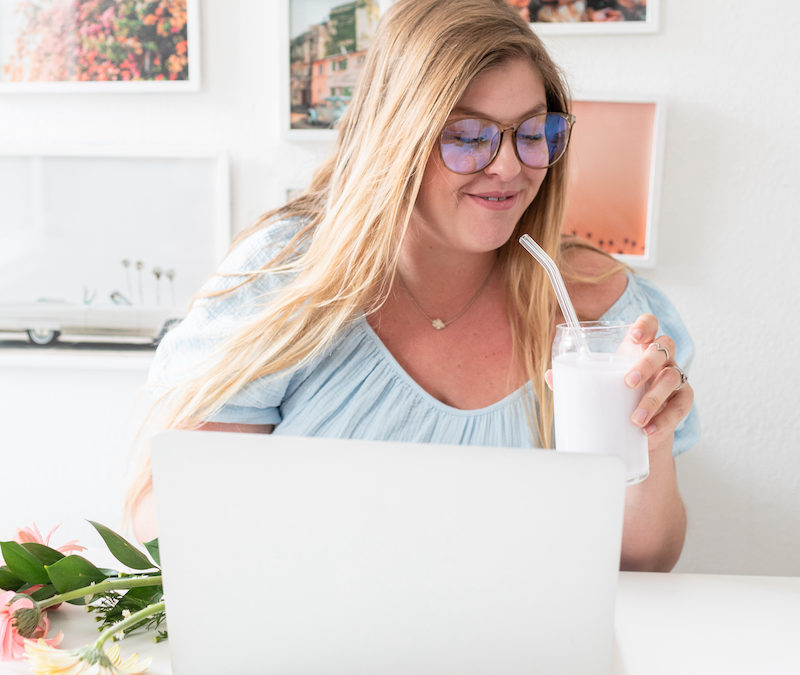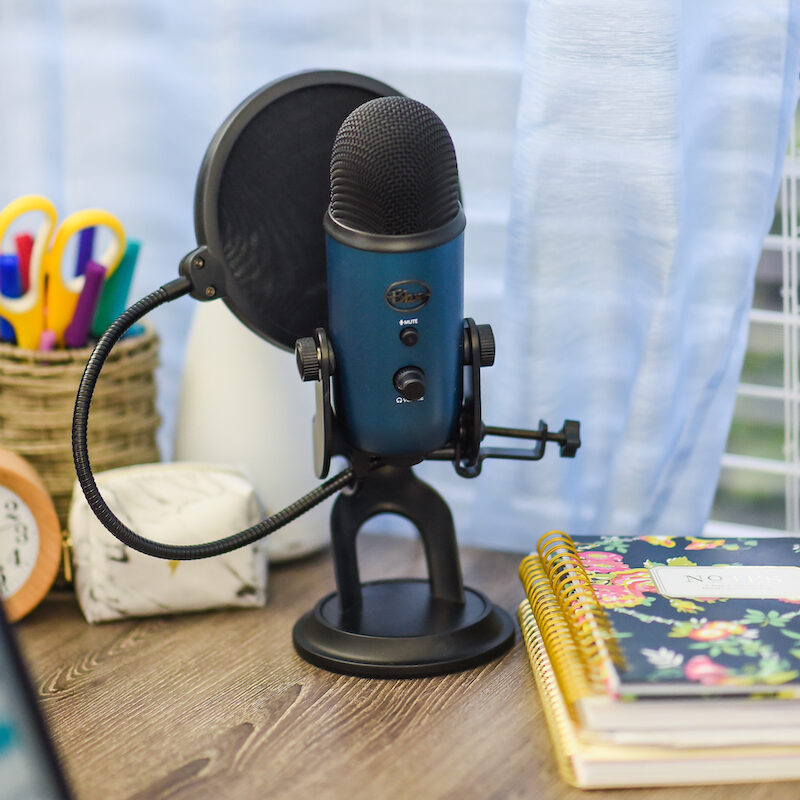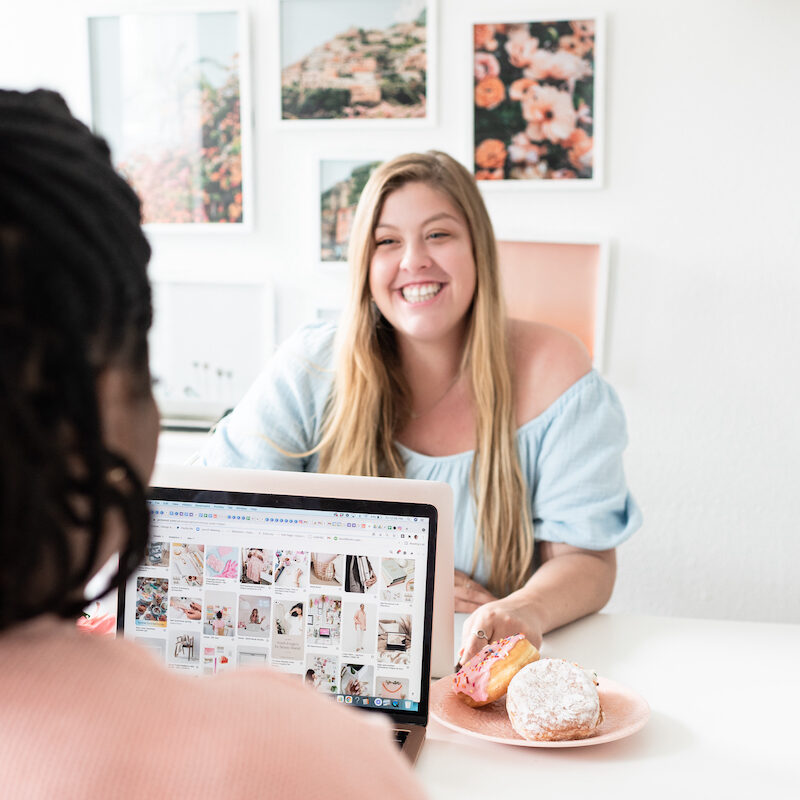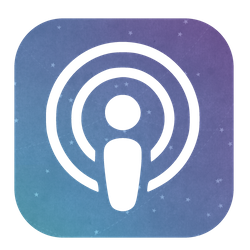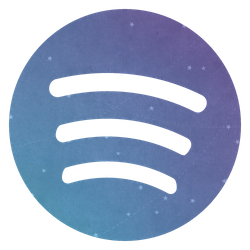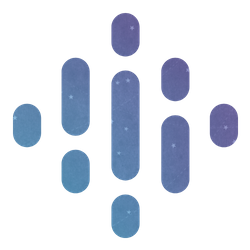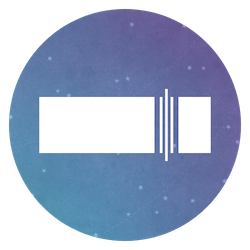episode 25
Being a WOMAN Web Designer & Developer
Today Sam & Karyn discuss diversity and inclusion in tech, creating your own space and making existing spaces more equitable.
Episode 25: Being a WOMAN Web Designer
Show Notes:
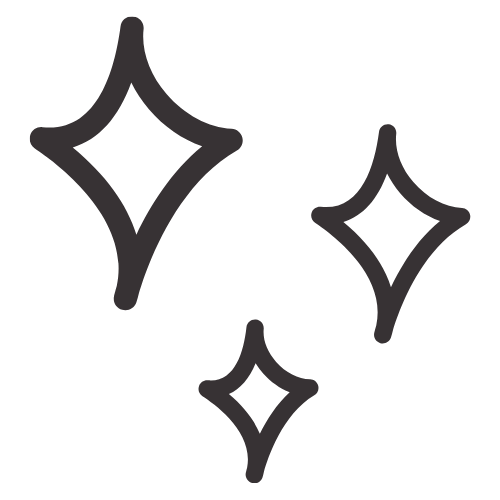




Episode Transcript:
Karyn Paige, Sam Munoz
Sam Munoz 00:00
I think that the beauty is that now owning our own like tech style company is, first of all, just like, screw you, you cannot hold me down. Like if I can’t find my way within a company like, I’ll just make my own. And I think that that’s like that is what is happening. I am seeing a revolution of just like not only like women in the tech industry like starting their own businesses, but like women in general starting businesses and just being like, this is Bs, like we’re done being capped, and we’re ready to just like do our own thing because we can do it just as well, if not better, and we can make inclusive spaces and we can make people feel seen and heard. And I think that that’s such a beautiful thing that we bring to web design is our womanhood. Welcome to making website magic where we empower women to step boldly into their web design businesses follow their intuition and claim the success they’re worthy of. I’m Sam Munoz.
Karyn Paige 00:59
And I’m Karen page, where the tech wizards behind Sam Munoz consulting on the making website, Magic School of Business. We’re two women here to talk about what it actually takes to run a web design business that’s aligned with your vision.
Sam Munoz 01:12
Spoiler alert, it probably isn’t what you think it is ready to hear about everything from refining your business vision, networking with intention and creating a magical client experience. Let’s do it. Hello, Karen.
Karyn Paige 01:30
Hey, Sam, how’s it going?
Sam Munoz 01:33
It’s going great. You know why? Because I am a woman in web design and development. That’s why it’s going great today.
Karyn Paige 01:40
Well, turns out I’m also a woman in web design. And yeah, that is why it’s going great today. And that is what we’re here to talk about.
Sam Munoz 01:49
I can’t wait. I’m excited. I’m like, I’m excited to have basically like an open conversation about what it looks like to be a woman in web design. And I feel like there is no better time to do this episode than today, Episode 25. This is like a huge milestone in the podcast. And I love those like, you know, significant numbers, right 2510 100. And I think it’s really cool to have a discussion about what it means to be a woman in web design experiences that we’ve had and just make it very conversational, we don’t have like bullet points or takeaways necessarily, I just hope that anyone listening to this podcast feels heard understood. And maybe if you’re a man listening to this episode, it will provide you some perspective in terms of what it looks like to be a woman in web design, and the different experiences that we might have that are different from your own. So I am very much looking forward to talking about this today.
Karyn Paige 02:48
Same I’m excited to talk about it today, as well, because that’s literally the foundation of this podcast, this whole show making website magic. It’s about being a woman in the web design industry, running businesses. But there’s this, this other piece that we allude to, in almost every episode about our perspective as women in this industry. And so I’m really excited to just devote an entire episode to the topic. Yes. And definitely like before we really dive into this conversation, we’d like to point out that when we’re talking about being a woman in web design, we don’t want that to be an exclusionary term, right? So essentially, there are lots of different ways to identify yourself, if you’re socialized as a female or a woman or you identify as a woman, if you identify as another marginalized gender, non binary, whatever, like, come sit over here with us, we’re really just having this conversation about what it’s like to not not identify as like the dominant gender in this space, which is cisgender, hetero normative. Male, right? So raise your hand, if you are like, I’m outside of that identity. We see you come over here, talk to us, but it’s just for our personal stories. Sam, and I both identify as women and so we naturally gravitate towards that. But overall, it’s like, the more inclusive, the more amplified for marginalized identities and genders, the better so we’re here we got you keep listening.
Sam Munoz 04:26
Yes. And this is really an open conversation, right? That’s the whole idea is that I would like to talk about like, the good, the bad, the ugly to just being in this space, as a woman or as the non dominant person. Yeah. And I think that there’s a lot that you mentioned this before. There’s a lot that we’ve already covered on the podcast, and like there’s this through line of some of the experiences that we are having some of the reasons we might be undercharging. As a web designer, we might be offering everything As a web designer, and feeling like we have to those things may inherently be connected to the way that we identify and being a woman in this space. And it’s really interesting how that kind of shapes the way we do business, it also shapes just the way that we experience selling services. Like I feel like every aspect of business is shaped and molded by who we are. So I actually think it would be kind of cool to almost like interview ourselves, you know, like, maybe have some questions to ask, or just to kind of help us like frame this conversation, since we are having it more of like a dialogue. But what about starting with this idea of what it’s like to be a woman in like the quote unquote, tech industry? And even like, what does the tech industry include? What does it mean? I feel like maybe we should start there so that we can talk about maybe our personal stories, and like how that’s shown up for us being a woman in the space.
Karyn Paige 06:02
Yes, I love that. So Sam, what is it like to be a woman in the tech industry?
Sam Munoz 06:08
It’s really interesting, I feel like I have a specific perspective. Because if you guys don’t know my story, yet, I went to school for engineering, that was like, the thing that I wanted to do with my life. And when I was in college, I was in the class that had like the first I think we were 52% women. So it’s kind of a big deal. I was a part of like this groundbreaking class of students that was shifting the narrative of male dominated tech space at a stem school. And there was a lot of pressure, actually, it was really interesting, like looking back, it was like, okay, we’re the first ones, like, we got it, like crush all the grades, like do really well, which like, spoiler alert, I did not crush all of my grades I like struggled super, super hard. And I think a lot of that is also related to that pressure. And just like being a woman, and all of those other things that I experienced anyway, leaving that space, I feel like because of that experience, I was hyper aware of the fact that I was about to enter an industry that was dominated by males. So this industry could include things like engineering, software development, web development, I think that that’s kind of what we mean by like the tech industry. And it’s interesting, because also like web design, web development, there are technical aspects to both of those things. But I feel like in general, something like design feels more feminine, or, you know, like the people like, I genuinely think that most people, if you said that you’re you’re a woman and you said like I’m an artist or a designer, they’re not like, they would raise an eyebrow and say, like, kind of like how, you know, in the back of their head. But in in more technical spaces, even web designer, where you’re doing things like maybe writing code, or you know, you’re pulling an integrating software’s together, there might be more of like a hesitation or like pause, which, to me is like a problem in and of itself, this idea that, like, what we do is tied to our gender and like there being spaces that are so flooded by males, that a woman being a part of that is like, questionable. That’s kind of like a more broad, we’ll look into how I see like being a woman in the tech industry. And just like there’s a lot of things that are there. I think I mentioned like five different things that we could talk about.
Karyn Paige 08:22
Yeah. When you think of the phrase tech industry, it really is super broad. And it does include things like engineering, software, biotech, I’m thinking of, you know, my experiences growing up in the Bay Area, like just like an hour outside of Silicon Valley, right? Like, that’s where I grew up. When I became an adult, like I moved to San Francisco. And so it was always very, like, adjacent to tech, right? Like it was just always kind of there, even from a social perspective. Like I was really surrounded by like, tech bros, right? And then, for several years, I worked at an online marketing agency in the admin department, but I was kind of immersed in this space where it was literally the dudes wearing hoodies and flip flops and like playing what is that game cornhole? We have like, cornhole tables in the office, which was super annoying, right? And it was like, all the things like everybody’s eating breakfast, lunch and dinner in the office, and then we’re playing beer pong at night, or you know, like, team building exercises and stuff. So that whole like culture around the tech industry was very immersed in it, essentially. And so what I noticed from that is it really did feel like there were gendered spaces even within the company and the the culture itself, it was like, the men are doing the coding. The women are doing maybe the marketing or the account management which is all based on like relationships or the women are doing the admin and the accounting basically just anything that could be general operations for any company doesn’t Matter of is tech related or not right? There may have been like on a team of 10, maybe like one in 10 people would be a woman, right? And then maybe there’d be a woman of color. But she wouldn’t last that long. Like it was always this kind of thing that would notice where this isn’t real, the tech industry doesn’t really feel like a space that welcomes and includes women in the tech part.
Sam Munoz 10:24
Yes. And it’s interesting, because I think that when I experienced that in all sorts of different spaces, whether that be I mean, I had a job that I absolutely, I think really changed my perspective on being a woman in a technical field. This was outside of web development, but I was working at a structural engineering company, and then I found out that I was being like, significantly paid less compared to the men. And the other woman that was working there as well, both of us engineering degrees, like we had all of the skills, were being paid less than people that were not as skilled. I do feel like that experience really changed the way that I felt, I felt like coming out of college, I was like, Alright, I’m fired up, like, I’m gonna, like, break glass ceilings, and like, come into this space. And then I felt extremely demoralized after that experience. And it took me a while to recover. And I think that the beauty is that now owning our own, like, tech style company, is, first of all, just like, screw you, you cannot hold me down. Like, if I can’t find my way within a company, like, I’ll just make my own. And I think that that’s like, that is what is happening. I am seeing a revolution of just like not only like women in the tech industry, and like starting their own businesses, but like women in general, starting businesses, and just being like, this is Bs, like we’re done, being kept. And we’re ready to just like, do our own thing, because we can do it just as well, if not better, and we can make inclusive spaces, and we can make people feel seen and heard. And I think that that’s such a beautiful thing that we bring to web design is our womanhood, which is really interesting how like those experiences shaped like the reason that you enter a business in the first place, or like the people that you choose to work with, or whatever, there’s just so much wrapped up into it. I’m like, having trouble getting the words out, because I’m so passionate about women being in tech spaces. And also there’s so much of my story and your story. And like any woman that’s listening, that is like, it’s also tied to like our identities and our hearts. And so it’s hard to like, it’s hard to always be breaking glass ceilings, and moving against things instead of it just being an easy flow.
Karyn Paige 12:39
Yes, yes, yes. 100, like you touched on so many things that I want to circle back to. And we’ll start with the last thing you said about it’s hard to be breaking ceilings, it’s hard. It’s taxing and exhausting to always be the first, the only to have to be the best, right like that. Excellent. That’s a lot of pressure to put on us. And also it’s like, makes me think of what you said earlier about, like really, the scarring, the trauma of like, knowing that you’re being paid less in a space like really coming to that realization, like we are always hearing things about pay gaps, right between women and men like gender pay gaps. There’s even like, even more stratified gender pay gaps between women of different women of color, like different communities, right? But those things are actually not unintentional. Like, it’s not like, you just got your feelings hurt because this thing happened, right? This thing happened to marginalized women in the community. Like, the reason why there are like gender pay gaps is because the industries are set up where they really just want to keep it male dominant, they really, really do. And so it’s like, all of these inculturation. And things that happen and policies that make it difficult for women, are there marginalized communities to stay in those spaces, right? Like, if we pay them less, a side effect of it is they will get upset and goldleaf. Or we can pay them less because there’s probably another breadwinner in their their family, aka their husband. Those are the people who really need to be paid more like that’s literally the argument that’s been used for generations is like, men need to be paid more than women, because they’re the breadwinner, and they have people to take care of women can be taken care of by men. So it’s like doesn’t matter, right? But there’s all these things where it’s like, the side effect of keeping spaces male dominant is that it just pushes women out. So it’s like, we’re not even thinking about you. We really don’t kind of want you here so I could go on and on about it. And that’s why we have like policies and laws and things to make spaces more inclusive. Because if we naturally wanted to make them more inclusive, we wouldn’t need to be forced by federal regulations to do so. Right. So what comes from that is that’s why there is this revolution. like women opening their own businesses, because we have all of the skills required, we have all of the institutional knowledge, we understand how to do the thing. But we’re not included in the mainstream to traditional industry. So we have to go create it for ourselves like that is a narrative for marginalized genders, marginalized, ethnic and racial groups, like it’s the thing, we have to go create it for us by us, because we’re really just not included and welcomed in the spaces. And that’s, the spaces are designed to not include us unless they’re forced to, which
Sam Munoz 15:39
like, I guess I can see it in two ways, right? I can see it as like, this sucks that we have to go create our own space, this really is burdensome, wouldn’t it be nice to not have to work so hard to have to make our own space to have to, like, do all this extra stuff and to just like, wouldn’t it be nice to just exist as you are, be trusted with your skills, you know, all these great things. But then flip it, reframe it, it’s amazing that we get to create a new space for us. And in that space, we get to be inclusive, we get to do all the things that people in the in the dominant space don’t do for us. And we get to make these new spaces. And I think that that’s so beautiful. And I think that that’s why it’s almost even more important to show up as a woman web designer, and to really own the fact that you are because you have a perspective of that lifetime of experience to bring to the table. You can support other women in your business, raise them up as well. And I feel like that’s why we’re so passionate SMC about working specifically with women. Because it’s like, by women, for women. And I just think that that’s amazing in terms of like creating a space to lift up the people who have for so long, felt excluded. And you get to do that because of who you are. And that’s so cool.
Karyn Paige 17:09
Yeah, it is so cool. And also like, I feel like I want to shout out the women who are like eff that noise. I want to like, make the industry just better. Like I shouldn’t have to leave, I should get to stay in this company, I should get to stay in this industry. Y’all need to change. It’s not up to me to like build something from scratch. That might be some other people’s role. But there’s also room for like any marginalized identity and gender women to be like, No, I want to make this thing better. Like y’all need to include us. There’s also space to for like, allies who are men and accomplices and co conspirators who are like, No, I’m going to be your Trojan horse. I’ll bust the door down. And then when it’s down, you fled, right? Like it’s like, like a homer. Iliad Odyssey. Yeah. But yeah, so there is space there for people to have almost like different roles right within this. How do we uplift everybody? How do we empower more women and it doesn’t have to just look like everybody’s out here opening their own businesses, it can 100% 100%
Sam Munoz 18:13
I’ve mentioned this on the podcast a couple times, if you ladies are not on Twitter, I highly recommend you go hang out on Twitter a little bit. Because if you’re a web designer or developer, this is a space where everybody is like, it’s like a hub, a buzzing hub of of people. And I have seen women in corporate jobs, Spotify, Shopify, like working within those spaces as web developers and designers and software developers and have like, this is amazing. I like didn’t know this community existed. Like I said, I went to school with a bunch of like, amazing, talented women in STEM. And I had been really lacking that for a long time, like being around so many tech women. And now being on Twitter, I’m like, they are there. They are thriving, they are doing things in industry, outside of industry and their own businesses. And it is incredible to see. Because again, there’s just I think that when we have more women in these spaces, again, that idea of like it being less surprising to tell someone what you do, we can start to build in that inherent trust so we don’t have to work so hard to prove that we know what we’re talking about. Someone just says okay, great. Like you said this thing and I trust you because I trust you because you have you know the background to prove that you know what you’re talking about? Not because you’re a man, like yeah, and the more people we have in there building themselves up and building up the spaces for marginalized groups like that, the better for everyone.
Karyn Paige 19:48
Yeah, I mean, it makes me think of like when I first started dabbling in code, I was learning HTML and CSS from like an Online Learning Portal called skillcrush these do these webinars where they would interview women in different tech roles. So like women who are like coding with Python, and like JavaScript, and like, all kinds of stuff, right. And then that’s how I got informed of different communities like the civically, like Women Who Code, you know, to me, like these communities where it’s not the company. It’s like a nonprofit organization with like chapters all over the country where you just meet other Women Who Code and you’re doing, like hackathons together and having like conferences, and in person events, and all this kind of stuff. And then I learned about Black Girls CODE, which is an organization out of the California bay area that teaches little black girls how to code and how to like develop apps, and it’s all this stuff. So it’s like, all of those people, all those, those women they are working in, you know, their own businesses, or they’re working for companies and doing all this stuff. But then they come together outside of that space, to like build community and shared knowledge, and create pathways and opportunities and things like that. And again, it was like, it can look like so many different things. The side note of it is like, if the spaces were already inclusive, you may not need to have affinity groups on the side where people can feel supported and community. But the benefit of that is, those types of organizations are so prevalent that it is helping to like usher in opportunities for the future, which is as equally important, like the things that we’re doing now, like starting our own businesses now. It’s that ripple effect of like, we get to serve underserved communities, other women clients, marginalized identities, we’re helping them further their mission, like we are bringing other women onto our teams. So it’s again, it’s like this ripple effect of making the change. And it is happening.
Sam Munoz 21:54
Yes, and I love this idea that everyone benefits from more people in the spaces. Because even that, you know, earlier you were talking about breadwinners and things like that it had me really thinking about like the male perspective, and all of this. And I know plenty of men who are not necessarily interested in being the breadwinner, they’re not necessarily interested in like fitting into the traditional gender roles and things like that. And so when more women enter these spaces, that allows them access to explore the other sides of them, that don’t involve sticking to their traditional role. Now they can go out and do the things that were traditionally for women, and I feel like it empowers everybody to step into the spaces that feel right for them, and empower them. Do you know what I mean? So like, I don’t want us to feel like man hating. I think that all of this is beneficial for everybody. Yeah,
Karyn Paige 22:47
it has beneficial for everybody and let’s talk about how like systems like patriarchy don’t just harm women, they harm men too, because that’s where toxic masculinity comes from. That’s where pressure to like be the breadwinner comes from, there are so many partnerships that we’re seeing these days where it’s like, a you know, that kind of nuclear heteronormative family, right, where it’s like, wife, husband, kids, we’re seeing the husband is the stay at home dad, who’s pursuing his passions, and the woman is like, I am the powerhouse, top level entrepreneur with all of this, like ambition and drive and I want to work in the middle of the night, like, you know, like the the kind of roles and expectations are reversed. And that’s okay, too. That is a benefit of everybody kind of saying, you know, this whole patriarchy thing is like not working for any of us like, right? Like, Hey, guys, you guys have been doing the heavy lifting for a long time, like, go hang out and like do your passion project in the garage. I’m gonna bring home the bacon and right over the pan, because that’s what I’m interested in. You know what I mean? Yes, we kind of need everybody on the team in order to make the change, like women in marginalized identities can be making the change, and also we need dudes, we need our allies and accomplices to be like, I got you. We want to see you in the spirit of innovation and diverse ideas. Like that’s the other piece, right? Like you mentioned, diverse ideas. Part of how industries stagnate, right, is by not diversifying the types of ideas to keep it going. And women bring in new ideas, marginalized communities bring in new ideas. And so, you know, it’s not unusual that when we’re looking specifically at web design, there’s a lot of websites out there that look the same. And part of that is because there’s just like good user experience and user interface design because of psychology of design. But also it’s because when there’s no new people coming in the room, they’re not bringing in the new ideas of like, Hey, we can do things this way. Or hey, did you know there’s other people out there who want to see things that way? Let’s design for them. So which is very ironic, but Because tech is about innovation tech is about thinking forward. It is there is a futurism element to it. And it’s interesting that the tech industry isn’t more inclusive and isn’t more open to that innovation. They’re kind of like gatekeeping ideas and things like that. One is like, actually, if you let more women in the room, if you welcomed more women in the room and actually sat back and say, Hey, why don’t you manage this project? Why don’t you share your ideas, because we’re going to take a backseat, everything would just be better, be cooler, be more like innovative,
Sam Munoz 25:34
right? Because it’s not just a matter of like a woman being in the room, it’s also a woman being in a position to make decisions. Because if we’re just like, in there doing the work, like, that’s great, we’re there, but also like, being the spearhead, er, of design interfaces, and just different decision making processes that happen as a web designer or developer. If we don’t get to actually lead those conversations, then we’re just implementing ideas from the dominant perspective, which doesn’t allow us to access that ingenuity and innovation, I love that you brought up like bringing it really, really centering back to web design and development, like this idea that like cookie cutter websites, it’s like a thing, right. And there is beauty in a strong user interface, and like making things easy for people to find and click on and all of that. But bringing in more dynamics and bringing in different ways of doing things helps your client stand out, and your work stand out. And so bringing in your perspective is valuable. We don’t just have to follow the formula of I don’t want to call out any names, but like, we don’t have to just follow the formulas that were told, especially by the dominant genders and people, it’s okay to bring your own unique perspective. And like leaning into that and saying, like, I’ve got like a totally different idea. Like if you go to Samantha munoz.com right now, you will see a website that doesn’t look anything, like anything I’ve seen, and we’re bringing in our full creativity and perspective and uniqueness to it. And I think that that’s a beautiful thing.
Karyn Paige 27:08
Yeah, yeah, I just want to like pause on that and resonate with it. That’s laughing because I’m just like, I was thinking about, you mentioned, like having a woman in the room like, yeah, we were inclusive. We have a woman on the team. Oh, yeah, she’s just sitting there. By the side, nobody’s asking her any questions, she doesn’t feel safe to speak up. That’s just tokenism. And that’s just being a mascot. And that’s, that’s not true equity, diversity inclusion in the space, right.
Sam Munoz 27:38
So I think to kind of like circle back and also to close things out for this episode. I think just sending out uh, first of all, a bit of a virtual hug and also like, rah, rah, because you’re awesome. Thinking about being a woman, web designer, just like take a moment and pause and think about all the things that you bring to the table because of your unique perspective and background and maybe it’s outside of just being a woman right? Maybe you are, you know, you identify as all sorts of different things. And you have different life experiences that you’re bringing to the table, maybe there is something about you and your identity that is different in the space. Just think about the ways that those pieces of who you are actually contribute positively to your business and to your work. And how valuable that is to kind of give yourself like a little bit of a pat on the back like you’re doing this you’re you are entering a space that many people are afraid to enter and afraid to step into and to own and so that in and of itself deserves an applause and a congratulations because that’s a big deal. It’s scary showing up in a space where maybe you’re not so welcome. Or maybe there aren’t 1000 other people for you to look up to and look at. So right then and there like stop, pause and just reflect on your awesomeness.
Karyn Paige 29:03
Yeah. And then to add on to that too, because you’re here because you’re a woman web designer, you’re in this space, you’re visible to other women who might want to do it to your visible to clients, who might want to work with someone like you because they feel safer and they feel seen and they feel heard working with women. So it’s that other piece of the more we’re out there, the more we are putting ourselves out there and really like owning our space and, and standing empowered in what we do. We are encouraging and empowering other women to do the same. And we’re also putting out a beacon of light Hey, if you are looking for someone like me, I’m here. Let’s do this.
A Season of New Beginnings
Today Sam & Karyn make the bittersweet announcement to end the podcast as they step into a new season of life and business. They share what is to come for them, how you can stay connected to the Making Website Community and encourage you to be open to new opportunities, too.
Season 02 in Review
Today Sam & Karyn look back on season 02 of the podcast, celebrating successes in the mentorship, launching our free community, the future of the podcast and Making Website Magic at large.
People-Pleasing as a Web Designer & Developer
Today Sam & Karyn discuss people-pleasing, understanding that your business has needs and how to honor them in your client relationships.

